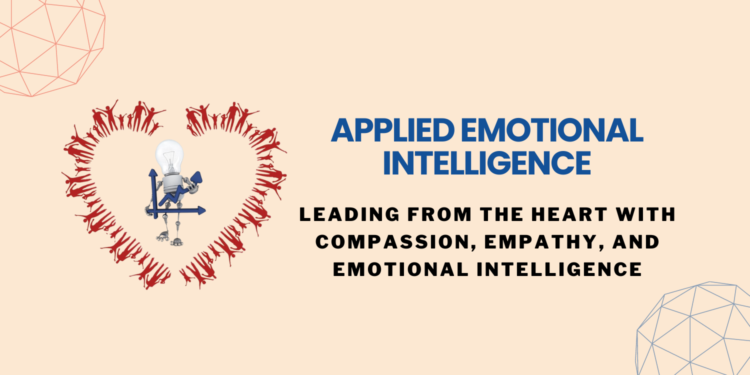Last Updated on May 25, 2022 by Editors Desk
Leading is a collection of human interactions rather than a sequence of mechanical chores.
Click Here To Know More About This Course
Being a responsible human leader with emotional intelligence entails speaking properly, maintaining promises, and being self-aware.
What you’ll learn
- Recognize how to apply emotional intelligence to develop meaningful relationships on a deeper level.
- Investigate how you use and balance your energy for the best efficiency.
- Investigate approaches and tactics for effectively expressing assertive behavior as a leader in key situations.
- Distinguish between ego states and life situations by outlining how they impact conduct.
Leadership is fundamentally human activity. This explains why, among all the demands placed on leaders, character matters more than knowledge.

We may like and admire a leader who understands nothing about the technical parts of our jobs but is a human being with high levels of emotional intelligence. Leaders who are mean-spirited, regardless of their technical ability, are irritating and hated.
The specific obstacles you confront are mostly relational in nature and revolve around the individuals you lead. As a leader, you are accountable for creating trust, honest connections, and productive teams. It is critical that you set a good example and motivate others to do the same. Your team looks to you as a leader for inspiration and drive to finish their task.
The most significant problems that leaders confront today include:
- Providing motivation
- Others’ development
- Change management
- Managing many points of view
- Managing Imposter Syndrome
- Managing a Team
Being a responsible human leader with emotional intelligence entails speaking properly, maintaining promises, and being self-aware. This emotional intelligence leadership course looks into how to use emotional intelligence as a leader. It will be useful to you if you are in a position of leadership.

This leadership course investigates the use of emotional intelligence at work as fundamental leadership ability. Your emotional intelligence enables you to regulate your intellect as well as your emotions, allowing you to make real decisions and cultivate meaningful connections. Daniel Goleman’s book Emotional Intelligence: Why it Matters More Than IQ was a best-seller in 1995 and is widely regarded as a landmark work on the subject.
People have said over the years, “I read this book and enjoyed it, but it doesn’t mention HOW.” “How do you develop and use emotional intelligence?” This course aims to address that problem by making emotional intelligence a practical and actionable component of excellent leadership.
Emotional intelligence is not a theory to learn and comprehend; it is a method of participating in order to be smarter with feelings. Using emotional intelligence effectively allows us to transform emotions into resources, allowing us to all be and achieve better.
The course will help you improve your leadership skills by combining some of the most effective ideas of human behavior and communication with modern insights into positive psychology and neuroscience.
People frequently discuss good and bad feelings. This is not very useful because emotions cannot be labeled in this manner. The training also debunks fallacies about positive and negative emotions, as well as why this language is inappropriate while working as a leader to understand emotions and emotional intelligence in the workplace.
To understand how and why emotional intelligence is vital in leadership, we must first understand ourselves. We look at how to use our abilities and limits to have a bigger effect, as well as how to understand what motivates us and our emotional responses. We’ll be delving into our emotional intelligence and how our brains respond to circumstances both consciously and unconsciously.



